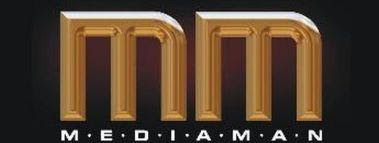THE durbar planned for April to provide us with "ideas for the future" is a noble objective if participatory democracy is your goal.
Eyebrows, however, have been raised somewhat higher than usual, followed by the obvious question: "Isn't that why we elected you?"
One newspaper speculated that among the "magnificent 1000" would be Gough, Malcolm, Bob and Paul, no doubt to ensure that youth were given a fair go, while media moguls David Gyngell, David Leckie and Eddie McGuire were included because they obviously lack a medium for projecting their views. Other shrinking violets suggested include Mick Dodson, Tim Flannery, John Symond and Dick Smith. It will be good to hear from them for a change, particularly Dick. What would a national talkfest be without him?
There is, we are told, no shortage of volunteers. Let's hope they are not just the usual suspects.
The concept is good but my concern is with the format and the time available for the participants.
There are precedents for such government-sponsored crystal ball gazing, Barry Jones's Commission for the Future (1985-98) being the most recent. It was, Barry assures me, the first Australian body to raise the spectre of global warming.
Of concern is what happens when 1000 of Australia's finest descend on Canberra and find they have only a few minutes to give tongue? The aforementioned take that long to clear their throats. This is not, however, the time to be churlish about an exercise enabling more citizens to contribute towards a national discussion about Australia's future. Prime Minister Kevin Rudd's sincerity in wanting to bring more people into the decision-making process is beyond question but the appropriate place to begin is in his own back yard.
Let's start with parliament. All Oppositions claim that good ideas do not reside solely with one side: until they become the government. Then they would rather bite off their arm than concede the Opposition has an idea worth adopting. It's seen as a sign of weakness.
They could not be more wrong and should the day come when the Prime Minister stands in the house and accepts an Opposition proposal he will be amazed at the public's reaction. It will be seen as a sign of magnanimity. There are early signs that the Prime Minister understands this and his invitation to Opposition Leader Brendan Nelson to join him in a war cabinet to tackle indigenous issues is encouraging. If this degree of agreement is maintained it won't be long before we'll be talking about the Rudd-Nelson government.
Now to the parliamentary process. For years, in this column, I have been railing against the takeover of question time by the previous Labor Opposition's executive. Traditionally, QT was one of the few opportunities members and senators had to quiz ministers about their portfolio responsibilities. It enabled the Opposition to place the PM and his ministers under pressure and, while the leader and deputy leader traditionally received a few more questions, shadow ministers received the same number as backbenchers.
During the Howard years that changed as successive leaders of the Labor Opposition and their shadow ministers dominated QT. Opposition backbenchers rarely got a question. When they did, it was only after it had been approved by the tactics committee. Amazingly, Opposition backbenchers surrendered on this score without a struggle.
I tried to imagine Arthur Calwell, Gough Whitlam or Jim Killen being told they could ask a question only after it had been approved by a tactics committee. It is depressing to see that the new Coalition executive is following much the same practice. Hopefully the Coalition backbench will show some spine and demand a return to the traditions of Westminster. Picture Winston Churchill being told when he could ask a question.
The Prime Minister could also contribute to more open debate and the flourishing of new ideas by releasing the shackles on his backbenchers and allowing greater freedom in debate. Labor has traditionally demanded its MPs toe the line and stick to party policy inside and outside parliament. If they don't, they can be expelled from the party.
When legislation is vital and defeat would require the Government to resign, absolute discipline is essential, but there are many instances when greater latitude could be permitted. Freedom to speak their mind and on occasions vote against the Government would not only revitalise parliament but encourage members to take initiatives and canvass alternative views and programs. In the not too distant future it will dawn on Labor backbenchers how little influence they have on government policy and that the same bureaucrats who advised the Howard government are calling the shots. They will lose heart.
Parliament aside, new avenues are opening up through the internet to enable governments and Oppositions to communicate with voters in a manner previously unimagined. New legislation can be explained, comments received and views exchanged. Opportunities exist for an ongoing dialogue between parliament and the voters. It doesn't necessarily mean that advice received from the public will be followed and this could mean some dissatisfied customers, but at least they will have had an opportunity to put their views.
The forthcoming ideas convocation is a novel concept. It will succeed only if it is part of an ongoing process that enables Government and Opposition to listen, understand and respond. If that doesn't happen, it will be seen as nothing more than a PR stunt.
Barry Cohen, a former Labor minister, is a regular contributor to The Australian's opinion page.
Media Man Australia Profiles
Politics
